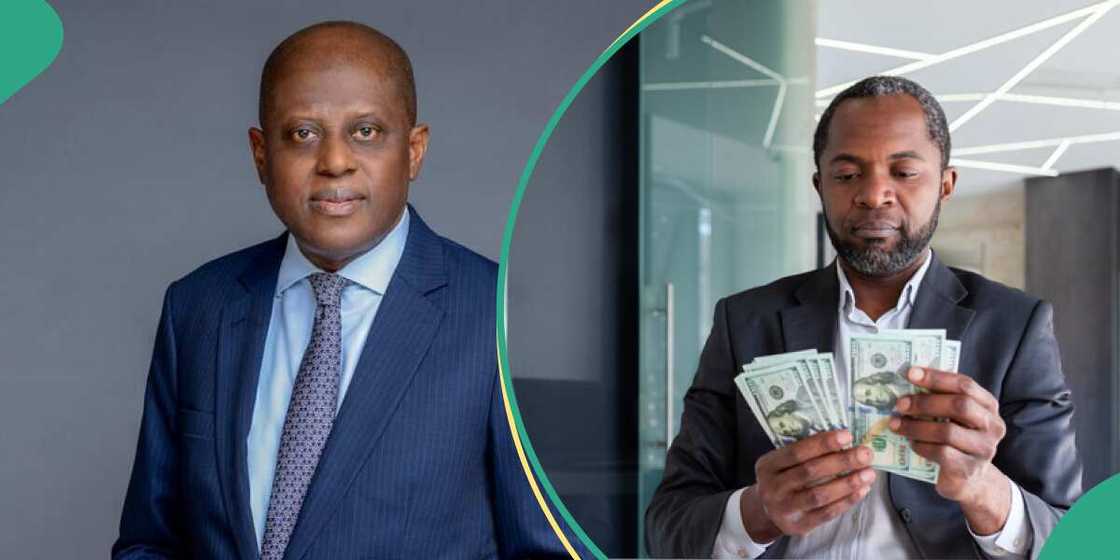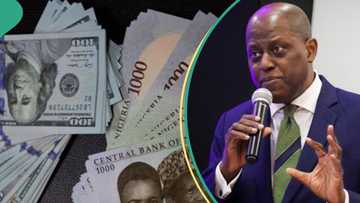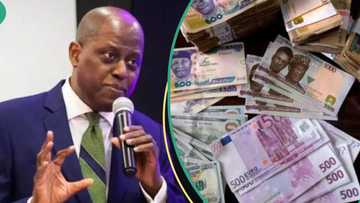CBN Shares Good News About Dollar Inflow Into Nigeria in February 2024
- The Central Bank of Nigeria said that there was an increase in foreign exchange inflow into the country in February
- According to the bank, this was triggered by remittance payments by Nigerians living abroad and purchases of naira assets
- Recent data also showed that March has already started well, indicating foreign investors' interest in sovereign debt
PAY ATTENTION: The 2024 Business Leaders Awards Present Entrepreneurs that Change Nigeria for the Better. Check out their Stories!
Legit.ng journalist Zainab Iwayemi has over three years of experience covering the Economy, Technology, and Capital Market.
The Central Bank of Nigeria (CBN) announced in February 2024 that there had been a substantial rise in foreign exchange inflow into the economy.

Source: Getty Images
It stated that this results from notable increases in remittance payments made by Nigerians living abroad and purchases of naira assets by foreign portfolio investors.
The bank's acting director of corporate communications, Hakama Sidi Ali, stated this in an interview with reporters in Abuja, according to an Independent.ng report.
PAY ATTENTION: Click “See First” under the “Following” tab to see Legit.ng News on your Facebook News Feed!
She noted that the data by the CBN has shown that international remittances increased to $1.3 billion in February 2024—more than four times the US$300 million received in January.
She said:
“Foreign investors purchased more than $11 billion of Nigerian assets last month, with total portfolio flows of at least $2.3 billion recorded thus far in 2024 compared to $3.9 billion seen in total for last year.”
According to her, more foreign exchange inflows persisted in March 2024 due to investors' growing interest in short-term sovereign debt owing to the most recent change to benchmark interest rates.
She said that approximately 75% of the bids received at the auctions held on March 1 and 6, 2024, came from foreign investors, indicating that government securities issuances had been heavily oversubscribed.

Read also
SEC introduces new guideline for cryptocurrency operations, others as Nigerians lose N500bn
Earlier, the CBN Governor, Olayemi Cardoso, presented a detailed plan to lower inflation, stabilise the exchange rate, and increase trust in the banking sector and the economy during last month's Monetary Policy Committee meeting and conference call with foreign portfolio investors.
He also said that Nigeria's foreign exchange reserves should continue to rise and that the foreign exchange market should see more liquidity.
Governor Cardoso said:
“All the different measures we have taken to boost reserves and create more liquidity in the markets have started to pay off.”
Banks sell dollars at new rate
Legit.ng reported that the value of the Nigerian currency fell against the US dollar in the official market despite recent efforts by the Central Bank of Nigeria to enforce stability.
According to data from FMDQ securities, the Naira closed at N1,605.74/$1 at the end of trading on Wednesday, March 6, 2024.
This represents a 0.2% or N3.31 depreciation compared with the previous day's N1,602,43/$1 exchange rate.
PAY ATTENTION: Stay Informed and follow us on Google News!
Source: Legit.ng




